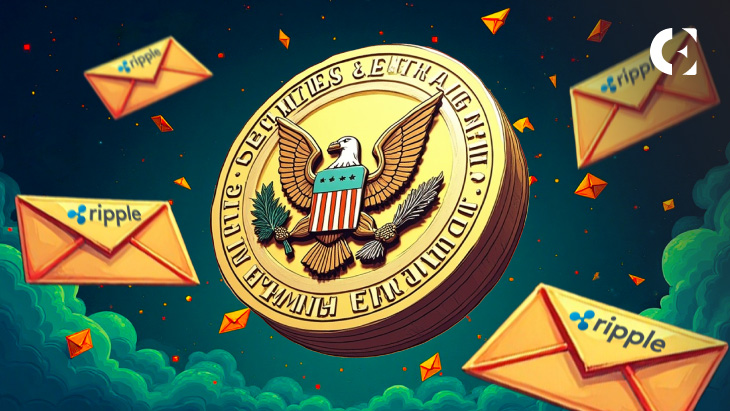- Ripple proposes a clear test for when tokens sever from original investment contracts.
- The framework requires material unfulfilled promises and enforceable holder rights.
- The alternative “maturity test” suggests a $1 billion market cap threshold for exclusion.
Ripple has submitted a detailed framework to the SEC’s Crypto Task Force addressing when digital assets become separated from their original investment contracts. The May 27 letter, signed by Chief Legal Officer Stuart Alderoty and other executives, responds to Commissioner Peirce’s “New Paradigm” speech.
The submission follows a May 20 meeting between Ripple and the SEC task force. This is where the company presented its analysis on cryptocurrency regulation. Ripple’s letter cites Judge Torres’s ruling in SEC v. Ripple Labs as validation that XRP itself is not a security.
According to Ripple’s legal framework, a digital asset remains tied to an investment contract only when two conditions are met. One is when a material promise made by the issuer to original purchasers remains unfulfilled, and a second when the subsequent holders have enforceable rights against the issuer arising from that promise.
Maturity Test Offers Alternative Approach
Beyond the initial framework, Ripple proposes a “maturity test” that would exclude certain digital assets from securities regulation entirely. This alternative approach focuses on objective economic criteria rather than subjective assessments of decentralization.
Under the maturity test, tokens would be excluded from securities laws if they meet three requirements: aggregate circulating market value above $1 billion, operation on an open, permissionless network for at least 10 years, and no single party having unilateral ability to change core functionality or reverse transactions.
Ripple argues this approach better shows economic realities than token ownership metrics. Assets meeting these standards already trade in liquid markets with public information and registered investment products like ETFs and futures built around them.
Ripple Calls for Safe Harbors and Congressional Action
The company contends that imposing disclosure requirements on mature networks would create misleading impressions about control and controllability when such control no longer exists. Ripple acknowledges the SEC’s concerns about bad actors evading accountability. However, they maintain that any regulatory gaps must be filled by Congress rather than agency enforcement. The letter emphasizes that new legal standards require legislative authority rather than administrative interpretation.
Related: Ripple CTO David Schwartz on XRP: User Outcomes More Key Than Strict Decentralization Purity
The company suggests that well-designed safe harbors could provide protection for good-faith actors and also help to maintain enforcement capabilities against genuine securities violations. However, such frameworks must operate within existing securities law scope rather than expanding it.
Disclaimer: The information presented in this article is for informational and educational purposes only. The article does not constitute financial advice or advice of any kind. Coin Edition is not responsible for any losses incurred as a result of the utilization of content, products, or services mentioned. Readers are advised to exercise caution before taking any action related to the company.







